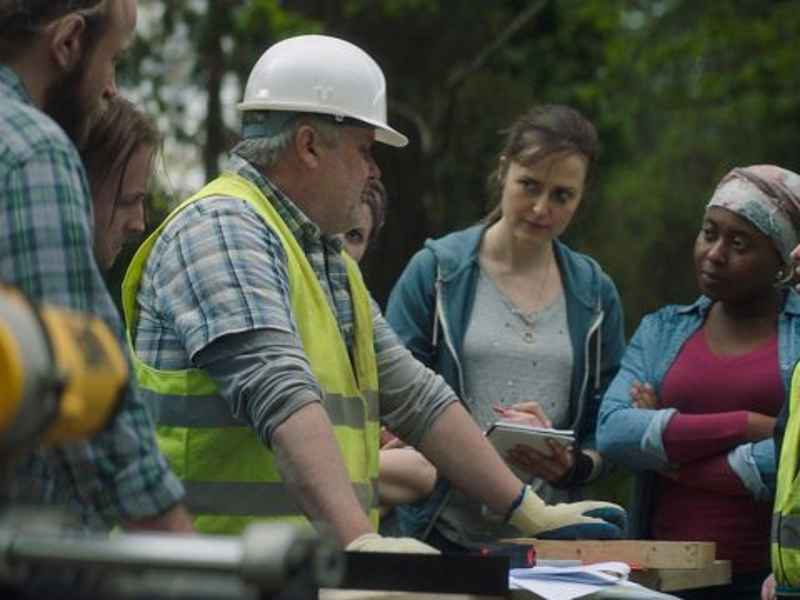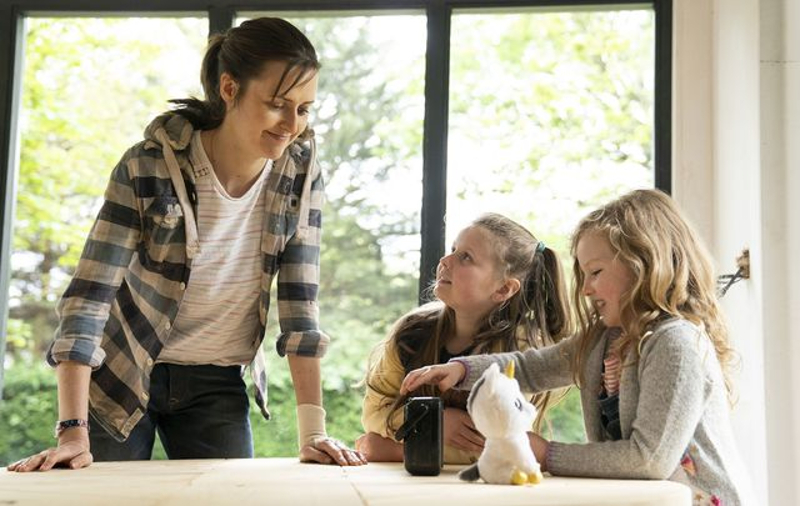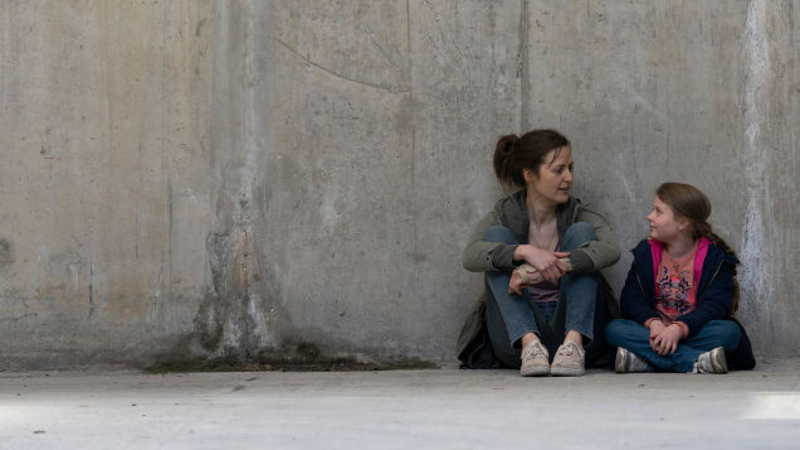Director – Phyllida Lloyd – 2020 – UK/Ireland – Cert. 15 – 97m
****
A woman leaves her abusive and violent husband and builds a new home for herself and her two young daughters – in UK cinemas from Friday, September 10th
Things come to a head in the marriage of Gary (Ian Lloyd Anderson) and Sandra (Clare Dunne, also co-screenwriter) when he violently assaults her and stamps on her hand, an incident witnessed by their younger daughter Molly (Molly McCann). Sandra has trained her kids well for such a situation and the eldest Emma (Ruby Rose O’Hara) knows what to do, rushing to the local shopkeeper with a lunch box inside the lid of which is the family address to give to the Garda.
Like her mother before her, Sandra works as a cleaner to retired and physically disabled local doctor Peggy O’Toole (Harriet Walter). To make ends meet, Sandra also works in a local pub as a barmaid alongside Amy (Ericka Roe) who lives in a nearby squat. After separating from Gary, she and he have joint custody of the kids while the council put her and her kids up in temporary accommodation in a hotel room.

As it’s four years on the housing list to get a home, Sandra investigates other alternatives and, surreptitiously using Peggy’s internet, discovers that she could build a house for only slightly more than a year’s rent to the council. Upon learning of this, Peggy gifts her the land behind her house as a site on which to build. With the help of middle-aged builder Aido Deveney (Conleth Hill) plus a hastily assembled weekend volunteer workforce comprising Amy, fellow squatters and a mum from the kids’ school, Sandra sets about building a house for herself and her kids.
This essay in can do and female empowerment is helped no end by a clutch of strong performances, most notably leading lady Dunne who completely nails her character with down to Earth, Irish matter-of-fact-ness. The violent opening immediately elicits our sympathy for her and sets us against her out of control husband, who thereafter is relegated to minor if pivotal character status as he takes in and gives back the kids and turns up at periodic custody court hearings. Walter provides strong support as the kind-hearted, no-nonsense, Zimmer frame-using doctor who makes Sandra’s dream possible while Hill acts as the voice of reason wanting to make sure that if Sandra takes on this job, she’s going to do everything properly. The two little girls O’Hara and McCann are also terrific.

Outside of a few genuinely unpleasant scenes, Dunne and co-writer Malcolm Campbell’s script isn’t interested in presenting Sandra as a victim in the manner of Custody (Xavier LeGrand, 2017) and there’s no attempt here to milk the separated mother’s role as a woman in peril for thriller purposes; rather, this is a drama exploring what she has to go through in order to build herself and her kids a new life.
It’s not kind to State welfare bureaucracies – a council housing officer listens to Sandra’s financially savvy pitch which could turn a profit for the state and rejects it out of hand – and favours instead people finding solutions to difficult issues by taking control of their own fate. Court hearings are traumatic experiences, even if Sandra receives considerable advice and moral support from her social worker Jo (Cathy Belton).
When Sandra and her crew erect one of the timber wall assemblies there are unmistakeable echoes of the Amish barn-raising scene in Witness (Peter Weir, 1985), but that aside this is a highly original and engaging little drama exploring radical solutions to the all-too common housing problem of temporary accommodation.
Herself is out in UK cinemas from Friday, September 10th. See my alternative review of the film for Reform.
Trailer:
